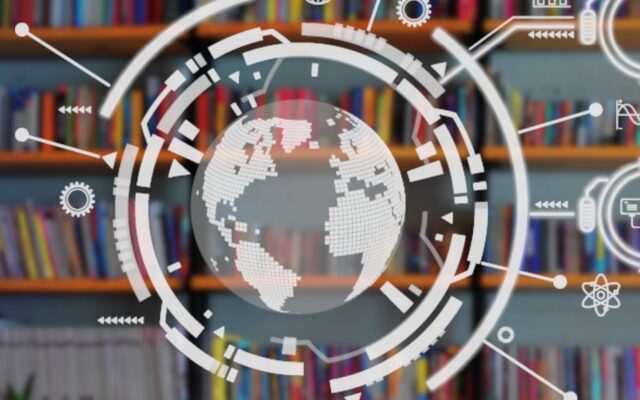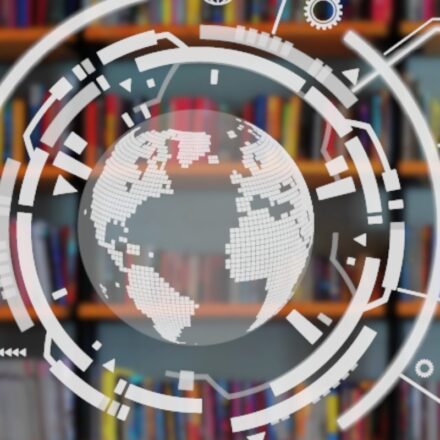I have a very strong memory of my mother teaching me how to spell “Wednesday.” She was busy packing lunches in preparation for a normal elementary school day, and she called out, “It starts out W-E-D, like wedding. It’s tricky.” I spelled it correctly in my spelling quiz that day, and to this day, I recall her tip when I write the word.
On National AI Literacy Day, this simple memory makes me think of the value of passing foundational skills through generations. Is the world ready to pass around foundational AI skills?
AI has the potential to create solutions for society’s biggest challenges, but it also has the potential to cause another digital divide or further exacerbate the one we already have. Without widespread AI access, adoption and literacy—from knowing how to input effective prompts to understanding the tools available—we’re limiting access to the opportunities AI can offer and increasing the gap between technology’s haves and have-nots.
Dell Technologies has been working with The National Digital Inclusion Alliance (NDIA) to get in front of this issue. Together, we’re encouraging conversation about the use of AI tools, how to expand access to them, how AI could be used to increase access to technology and how all these activities could result in a diversity of voices influencing AI development and inclusive global policymaking.
Understanding societal needs around AI is critical. Here are some of our observations and areas of focus.
Equitable Access to Devices and Internet Connectivity is Still a Baseline Need
Easy access to technology such as devices and high-speed Internet connectivity is a foundational need to access the benefits of our digital society. Since access to these basic tools is not equitable today, access to generative AI (GenAI) is also not equitable. This inequality is being recognized by governments around the world, including G7 ministers who have committed to collaborate with others to enhance local AI digital ecosystems.
By continuing to build and deploy digital inclusion programs focused on improving access to technology and the skills to use it, particularly in underrepresented communities, there will be more diverse people with familiarity and understanding of new technology like GenAI. This understanding of and access to the tools, along with inclusive regulatory design and deployment, is a necessary component of building safer and less biased GenAI tools.
Digital Skills Training Programs Are Essential for People to Safely and Confidently Use AI
Teaching how to safely use AI is a natural component of digital inclusion skills programs. If a digital inclusion practitioner is teaching someone how to use a browser, they can also teach an individual how to use GenAI tools like ChatGPT or Microsoft’s Copilot. Just as digital inclusion instructors teach community members about Internet security and how to be safe by identifying bogus websites and phishing, they’ll also play an essential role in teaching others how to verify content provided by GenAI tools. Bridging a widening skills gap is also critical to prepare a diverse workforce for the future. It is important that workforce development programs across the public and private sectors incorporate a basic AI curriculum, due to its essential value for our present and future.
Communities Need Trusted Experts to Help People Access Digital Services
The most effective way of bringing more people online is to connect them with a trusted person who can guide them through the process. AI tools can accelerate the work of these trusted individuals. However, these digital navigators—experts from the digital inclusion community— need to be part of the whole process. For example, Dell supports Drexel’s ExCITe Center, which assists community members in connecting to free or low-cost Internet services and provides computer maintenance and refurbishing services and training to the community. Future tools that can accelerate the ExCITe’s center’s mission could be backed by AI technology, but their efficacy and success will depend on the trusted community member at the center of its design and deployment.
“As the NDIA community, we know that technology alone will not solve the digital divide. Humans are essential to digital inclusion, to help introduce emerging technologies and guide the use of new technologies.”
– Angela Siefer, Executive Director, National Digital Inclusion Alliance (NDIA)
At NDIA’s Net Inclusion Conference in February 2024, Dell Technologies built the AI Discovery Hub, powered by Dell equipment. Young adults from Hopeworks, a nonprofit organization, became AI digital guides for the day and ran personalized demos of GenAI productivity-centric tools. Feedback was extremely positive: “I really enjoyed that Dell showcased a non-profit doing digital navigator work specifically with AI to help users better understand how AI can benefit them. This is something that has been asked of us from our community. Dell’s AI Hub brought education and ease to what can be a scary topic to many in the digital inclusion space.”
AI Literacy to Empower All
My mother’s tip for remembering how to spell “Wednesday” forms part of one small brick in the foundation of my overall literacy skills, much like understanding AI provides a crucial link for navigating the rapidly evolving digital world.
By focusing on digital skills training, trustworthy digital navigation and equitable access to technology, organizations like the NDIA and Dell Technologies are paving the way for a future where AI can be a tool for empowerment for all. GenAI could help millions of people leapfrog stages of their digital journey—and everyone deserves to jump off the same foundation.


